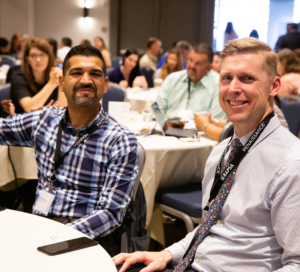Building Promise During COVID - 19
RAPSA Forum 2020
RAPSA’s Forums provide up to date information about progress on meaningful accountability policies for schools serving at-promise students. As states increasingly adopt alternative accountability policies, school leaders are challenged to design systems and pedagogies that put alternative accountability in practice. This year’s Forum includes 9 sessions with perspectives by leading experts from California, Colorado, Massachusetts, New York, Oregon, Texas and Utah.
And Still They Rise: Lessons from Students in NYC
In this session, we’ll present findings from a new study based on the survey responses of 842 transfer high school students. “And Still They Rise: Lessons from Students in New York City’s Alternative Transfer High Schools,” is a report from The Public Science Project at The Graduate Center of The City University of New York. Hear from the researchers and transfer school alumni as we examine the vibrant dedication, desire, education, struggles, and hopes of New York City youth. Transfer schools seek and deserve an accountability structure that takes a holistic and individuated approach to these schools and students, careful to not overburden them with misdirected state intervention or to stifle the very successes they were designed to cultivate.
- Ali Holstein(Speaker)Eskolta / Ali Holstein LLC, Consultant
- Mica Baum- Tuccillo(Speaker)City University of New York, Advanced Research Associate
- Evin Orfila(Speaker)Liberation Diploma Plus High School
Alternative Accountability for Reengaging Out of School Youth
- Terrance Mims(Speaker)SIATech, Superintendent/CEO
- Linda Leigh(Speaker)SIATech, Chief Data & Marketing Officer
- Jorge Ruiz de Velasco(Speaker)John W. Gardner Center, Stanford Graduate School of Education, Deputy Director
